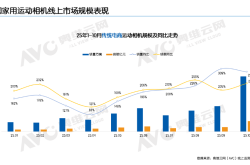Allegations of 'Worker Enslavement' at BYD's Brazilian Factory; Li Yunfei: False Accusations Always Have Excuses
![]() 12/27 2024
12/27 2024
![]() 437
437
Car2C has learned that a joint law enforcement team in Brazil inspected the construction site of BYD's factory under construction and discovered 163 workers in what were described as 'slave-like' working conditions, leading to the immediate temporary closure of the accommodation area and parts of the construction site.

It is reported that the Brazilian branch of Jinjiang Group hired these workers to provide construction services for BYD's Brazilian factory. The blocked accommodation and construction areas will remain temporarily closed until they fully comply with the requirements of relevant regulatory agencies.
The joint law enforcement team responsible for this inspection and subsequent handling includes Brazil's Ministry of Labor (MPT), Ministry of Labor and Employment (MTE), Federal Public Defender's Office (DPU), Federal Highway Police (PRF), Federal Public Prosecutor's Office (MPF), and Federal Police (PF).
According to the schedule, MPT and MTE will hold an online hearing on the afternoon of December 26, requiring BYD and Jinjiang Group to provide necessary measures to improve accommodation conditions and discuss the resolution of all currently identified issues. Additionally, Brazil's joint law enforcement team's inspections will continue, with the review of relevant documents still ongoing, and further on-site inspections may be required.
Brazil's Ministry of Labor: Poor Working and Accommodation Conditions
According to information released by MPT, Brazil's joint law enforcement team found that the accommodation and working conditions of 163 workers were extremely poor.
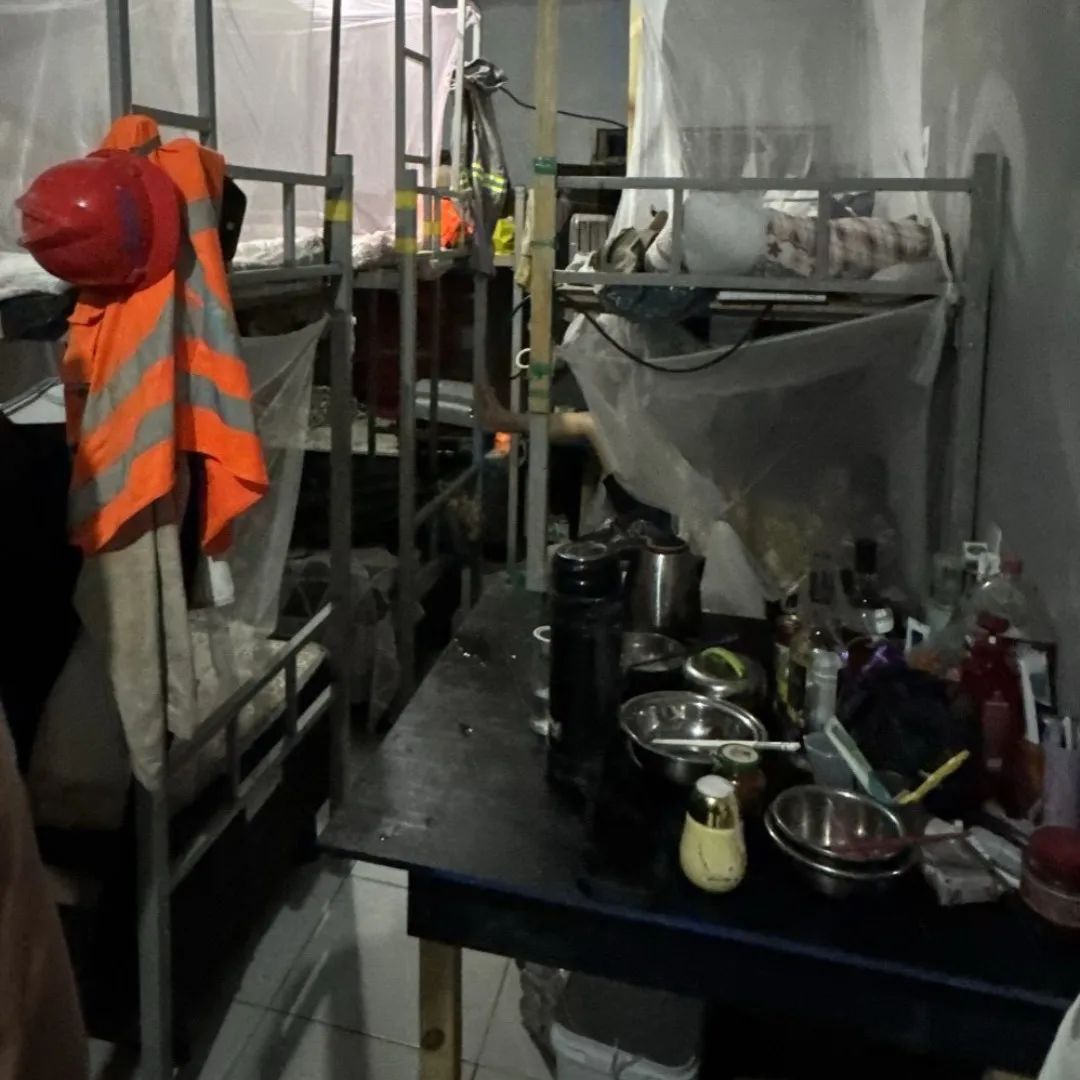
MPT pointed out that inadequate infrastructure and poor sanitation were prevalent in all accommodation areas. Specifically, workers in Accommodation Area 1 had to sleep on beds without mattresses, and their personal belongings were not properly stored, being mixed chaotically with food items.
Most alarmingly, sanitation conditions were extremely poor, with 31 workers sharing one restroom. Workers had to wake up at 4 am to queue, allowing them to start work at 5:30 am.
In some dining areas, kitchen facilities were rudimentary, lacking storage cabinets for food. Even more concerning, construction materials were piled next to food, and some food was stored near restrooms, completely failing to meet hygiene standards.
A cook in one kitchen once stored cooked food outdoors on the ground without refrigeration, intending to use it the next day.
Furthermore, only one accommodation area had a basic dining room with wooden tables and chairs, which could not accommodate all workers, leading most workers to eat in their beds.
Workers also had to obtain drinking water directly from taps, with the water quality not undergoing any treatment, and even took water in bottles to the workplace.
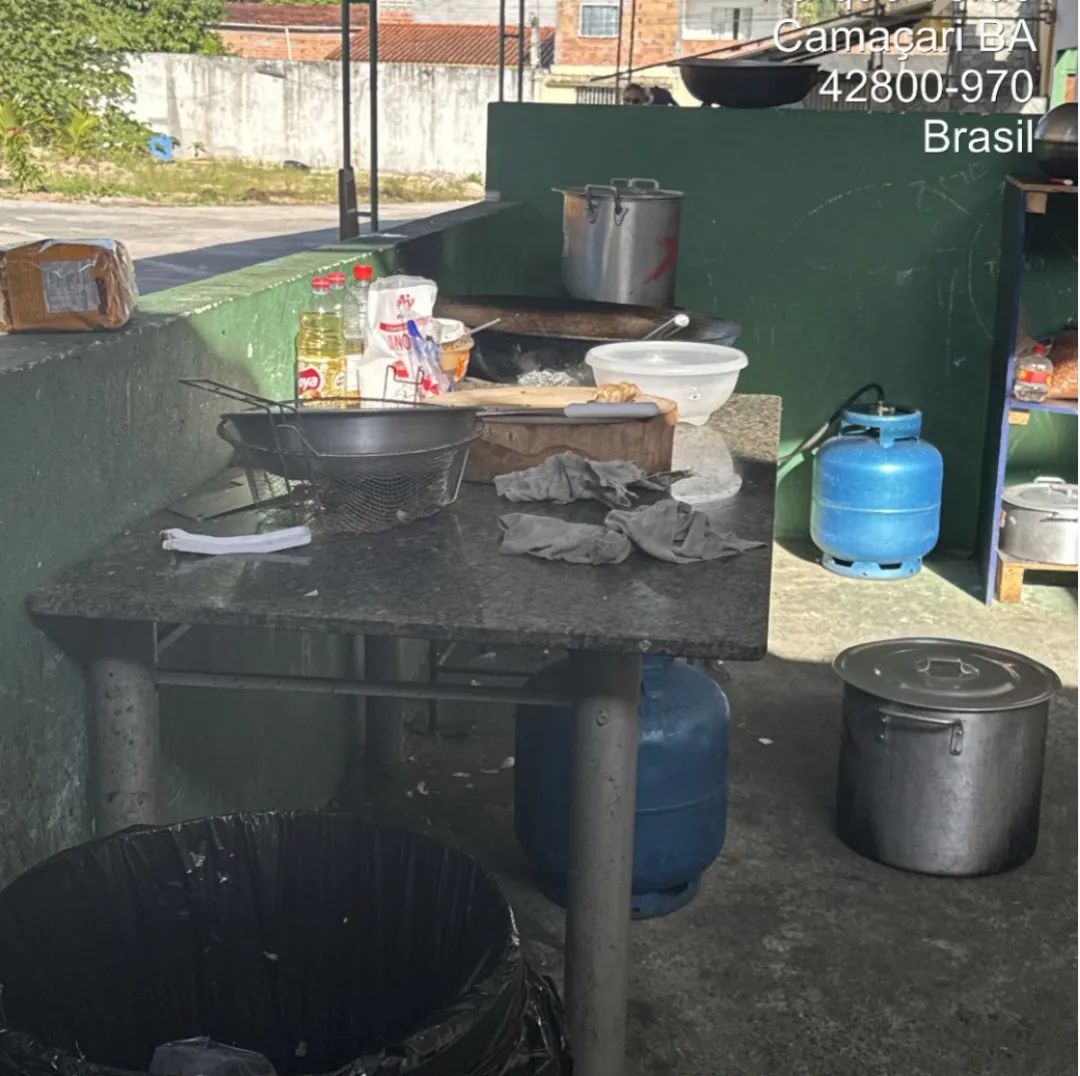
The construction site had only eight makeshift toilets for approximately 600 workers. These toilets were in poor condition, lacking toilet paper, clean water, or proper maintenance, and did not comply with prescribed safety distances.
Moreover, Brazil's joint law enforcement team discovered that workers were not only forced to pay deposits but also had 60% of their salaries withheld (paid in Chinese yuan) and faced high fines upon contract termination. Even more seriously, workers' passports were retained by the company, and if they terminated their contracts early, they would not only lose their deposits but also have to pay for their return flights at their own expense.
If workers wished to terminate their employment contracts early after working for six months, they would effectively receive nothing, as after deducting the withheld deposits and the cost of return flights, workers had almost no income left.
Additionally, the contract stipulated a working time of ten hours per day, but due to the inability to rest, the work intensity was greater. A worker involved in an industrial accident revealed that he had not rested for 25 days and was feeling fatigued and sleepy when the accident occurred, ultimately leading to the incident.
Responses from Jinjiang Group and BYD
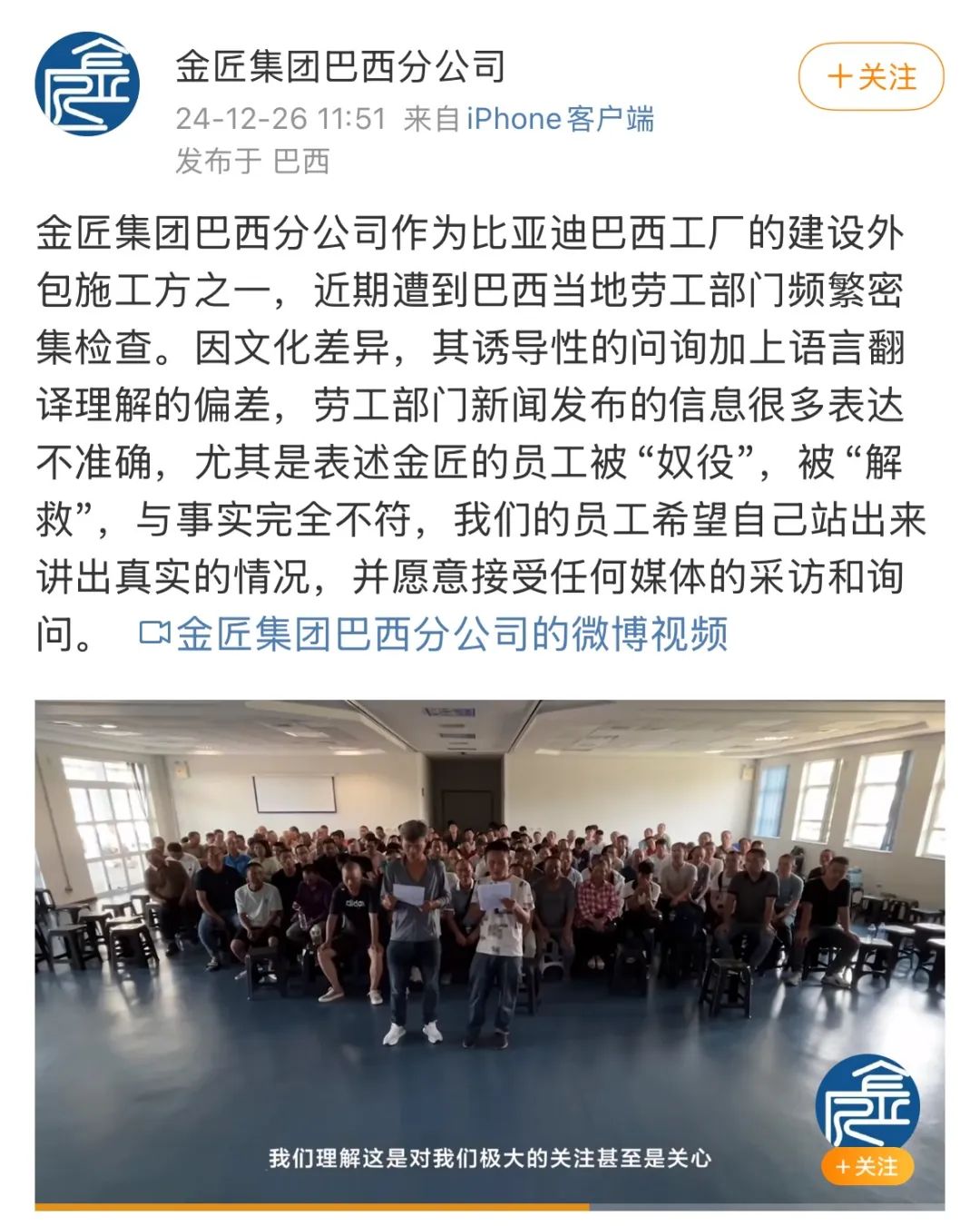
On December 26, Jinjiang Group's Brazilian branch posted on Weibo, "As one of the outsourcing contractors for the construction of BYD's Brazilian factory, Jinjiang Group's Brazilian branch has recently been subjected to frequent and intensive inspections by the local labor department in Brazil. Due to cultural differences, misleading inquiries combined with language translation misunderstandings have led to inaccurate information in the labor department's news releases, especially the depiction of Jinjiang's employees as being 'enslaved' and 'rescued,' which is completely inconsistent with the facts. Our employees wish to speak out themselves and share the true situation, and are willing to accept interviews and inquiries from any media outlet."
Shortly thereafter, the company posted again on Weibo, "Being falsely accused of 'enslavement' has made our employees feel insulted and their human rights violated, seriously harming the dignity of the Chinese people. Everyone has signed a joint letter expressing their true sentiments and is willing to accept interviews and inquiries from any media outlet."
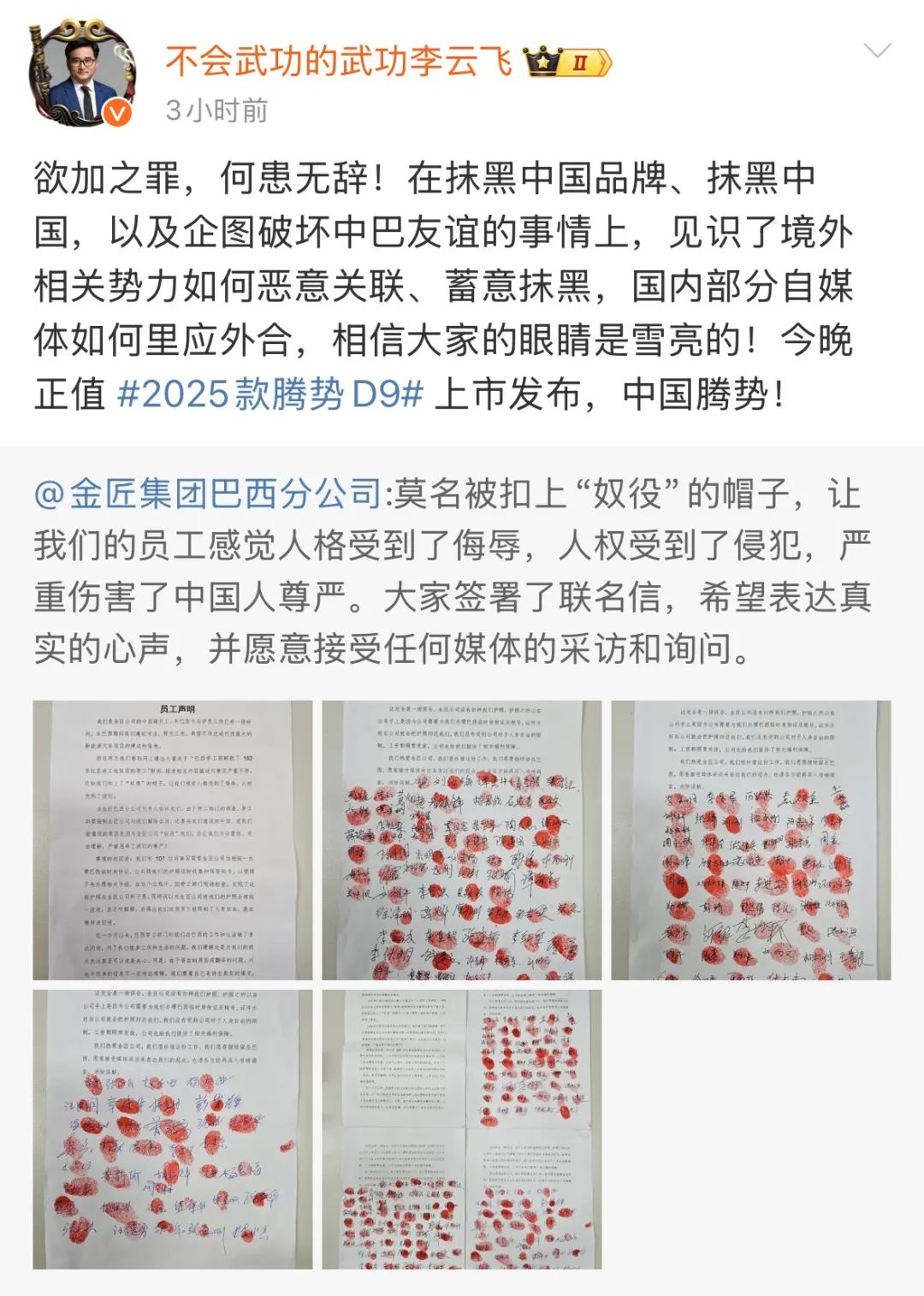
Li Yunfei, General Manager of BYD Group's Brand and Public Relations Department, retweeted this Weibo post and commented, "There's always an excuse for false accusations! I have witnessed how foreign forces maliciously associate and deliberately smear Chinese brands and China, as well as attempt to undermine Sino-Brazilian friendship. I have also seen how some domestic self-media outlets collude with them. I believe everyone's eyes are keen! Tonight marks the launch of the #2025 Tengshi D9#, China Tengshi is rising!"
(Images sourced from MPT, Jinjiang, and Li Yunfei's Weibo posts)





